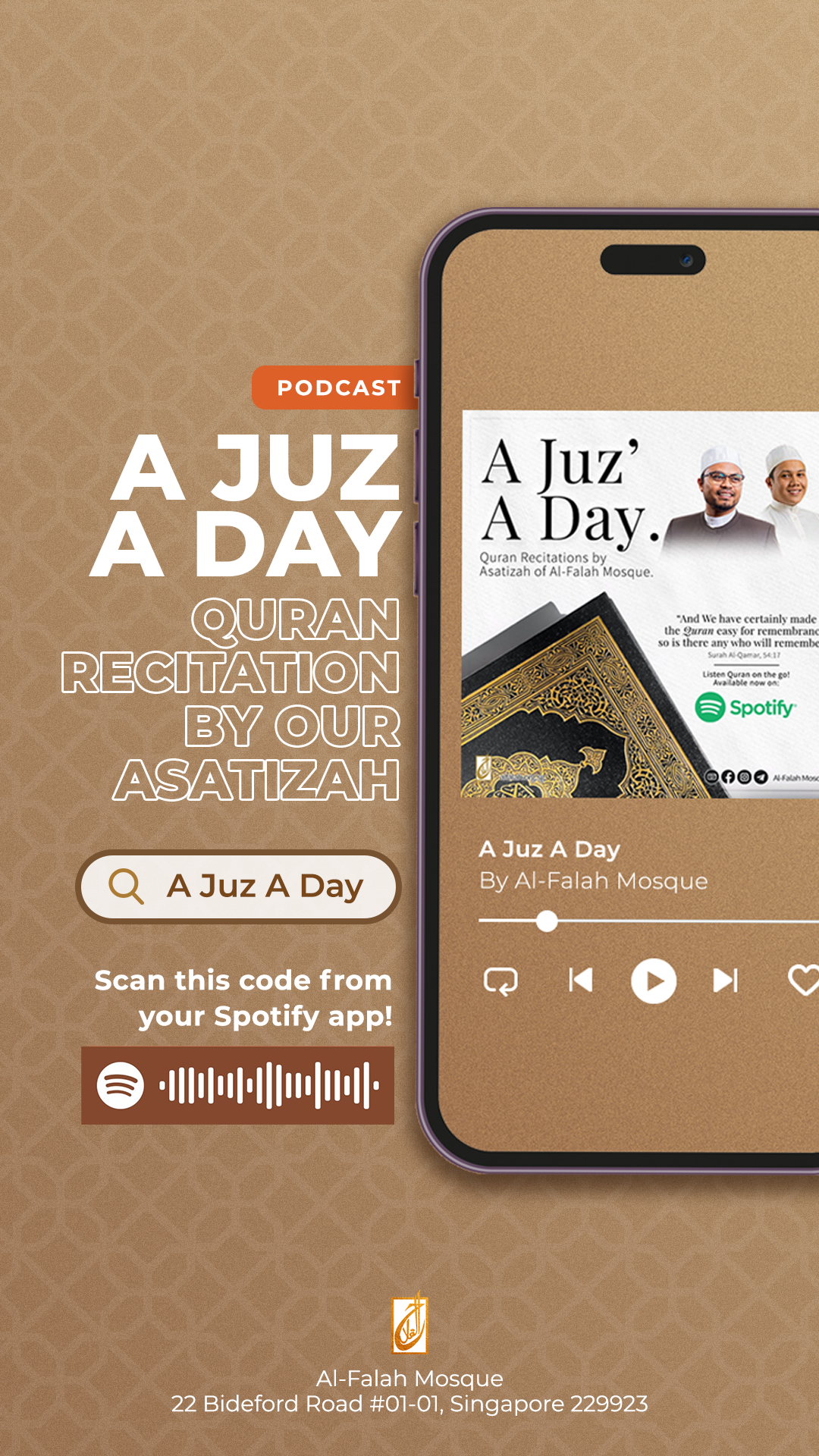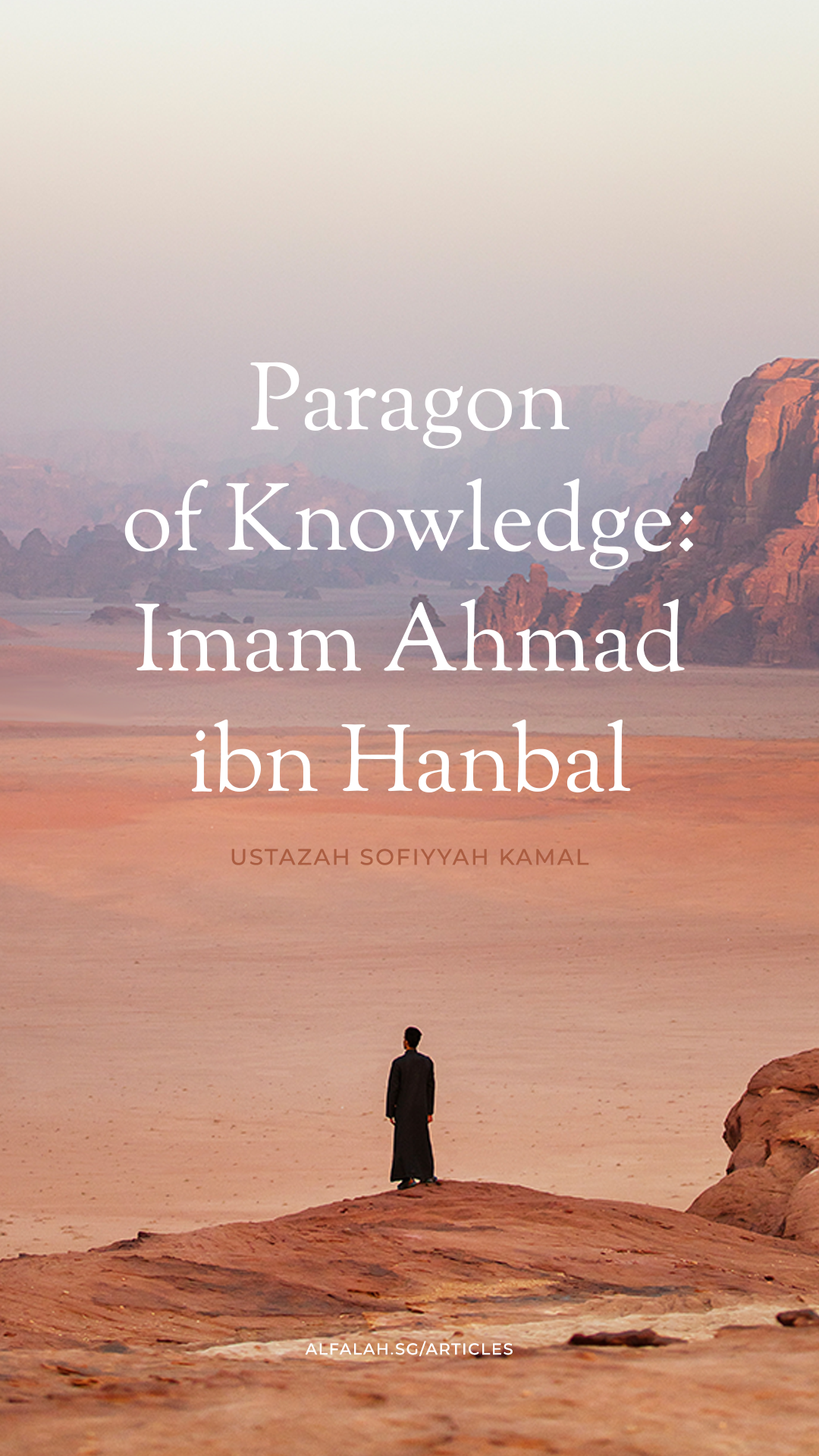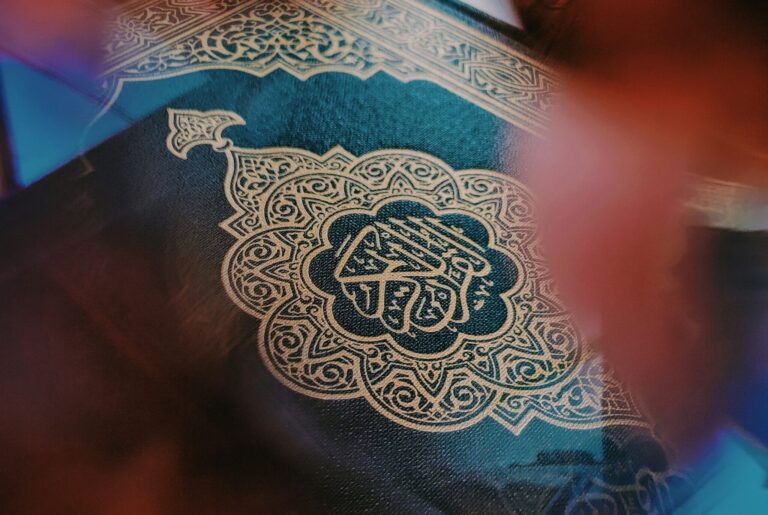Articles, Uncategorized
Ghaflah: Breaking Free from Spiritual and Emotional Blindness
- BY Ustaz Asysallehan Ali
- ON
- ghaflah, consciousness, emotion, spiritual

When we talk about ghaflah in the Quran, it’s like that feeling of being so caught up in life that we forget what truly matters. Imagine being so busy scrolling through your phone, chasing deadlines, or worrying about things that, deep down, aren’t that important—while completely missing the bigger picture. That’s ghaflah: a kind of spiritual “autopilot” where we lose sight of Allah, our purpose, and even the people around us. But ghaflah isn’t just about forgetting to pray or neglecting our faith. It’s also about how we treat others, especially when we brush aside their feelings.
The Quran repeatedly warns against ghaflah, urging believers to wake up from this state of heedlessness. It’s a call to be present, to care deeply, and to live with intentionality. Whether it’s neglecting our spiritual duties, failing to uphold justice, or ignoring the emotions of those around us, ghaflah creates a distance between us and what truly matters.
Ghaflah in the Quran and Hadith: A Deeper Look
1. Lack of Empathy and Compassion
The Quran emphasizes kindness and sensitivity toward others. In Surah Al-Hujurat (49:11), Allah warns:
يَا أَيُّهَا الَّذِينَ آمَنُوا لَا يَسْخَرْ قَوْمٌ مِّن قَوْمٍ عَسَىٰ أَن يَكُونُوا خَيْرًا مِّنْهُمْ
“O you who have believed, let not a people ridicule [another] people; perhaps they may be better than them…”
Mocking or belittling others reflects ghaflah—a heedlessness toward their dignity and emotions. Similarly, Surah Al-Isra (17:23) reminds us:
وَقَضَىٰ رَبُّكَ أَلَّا تَعْبُدُوا إِلَّا إِيَّاهُ وَبِالْوَالِدَيْنِ إِحْسَانًا
“And your Lord has decreed that you not worship except Him, and to parents, good treatment…”
When we brush aside someone’s feelings—whether through indifference, harshness, or neglect—we fall into ghaflah.
The Prophet Muhammad (peace be upon him) also emphasized the importance of empathy. He said: “The believers in their mutual kindness, compassion, and sympathy are like one body. When one part of the body suffers, the whole body feels pain.” (Sahih al-Bukhari)
This Hadith reminds us that neglecting the emotions of others is akin to neglecting a part of ourselves.
2. Failure to Uphold Justice
Justice is a cornerstone of Islamic teachings. In Surah An-Nisa (4:135), Allah commands:
يَا أَيُّهَا الَّذِينَ آمَنُوا كُونُوا قَوَّامِينَ بِالْقِسْطِ شُهَدَاءَ لِلَّهِ وَلَوْ عَلَىٰ أَنفُسِكُمْ
“O you who have believed, be persistently standing firm in justice, witnesses for Allah, even if it be against yourselves…”
Ignoring or dismissing someone’s emotions, especially when they’ve been wronged, reflects a heedlessness toward their rights and feelings.
The Prophet (peace be upon him) said:
“Help your brother, whether he is an oppressor or is oppressed.” When asked how to help an oppressor, he replied, “By preventing him from oppressing others.” (Sahih al-Bukhari)
This Hadith teaches us that justice requires active intervention, not passive indifference.
3. Neglecting Social Responsibilities
The Quran encourages believers to care for the vulnerable and fulfill their social obligations. In Surah Al-Ma’un (107:1-7), Allah criticizes those who neglect the needy:
أَرَأَيْتَ الَّذِي يُكَذِّبُ بِالدِّينِ، فَذَٰلِكَ الَّذِي يَدُعُّ الْيَتِيمَ، وَلَا يَحُضُّ عَلَىٰ طَعَامِ الْمِسْكِينِ
“Have you seen the one who denies the Recompense? For that is the one who drives away the orphan and does not encourage the feeding of the poor.”
Brushing aside the emotions of those who are suffering or in need is a failure to live up to our moral and social responsibilities.
The Prophet (peace be upon him) said:
“He is not a believer whose stomach is filled while his neighbor goes hungry.” (Al-Adab al-Mufrad)
This Hadith underscores the importance of being mindful of others’ needs and emotions.
4. Self-Centeredness and Arrogance
Ghaflah often manifests as self-centeredness, where individuals become so absorbed in their own concerns that they disregard the feelings of others. In Surah Luqman (31:18), Allah advises:
وَلَا تُصَعِّرْ خَدَّكَ لِلنَّاسِ وَلَا تَمْشِ فِي الْأَرْضِ مَرَحًا
“And do not turn your cheek [in contempt] toward people and do not walk through the earth exultantly. Indeed, Allah does not like everyone self-deluded and boastful.”
Emotional neglect stems from this lack of mindfulness and humility.
The Prophet (peace be upon him) said:
“Whoever has an atom’s weight of arrogance in his heart will not enter Paradise.” (Sahih Muslim)
This Hadith serves as a powerful reminder to remain humble and considerate of others.
Ghaflah in Today’s World: Emotional Blindness in Modern Life
In today’s fast-paced, individualistic world, ghaflah takes on new forms. It’s in the way we sometimes ignore a loved one’s pain because we’re too busy. It’s in the way we scroll past stories of suffering in the news, thinking, “That’s not my problem.” It’s even in the little things, like cutting someone off in conversation because we’re not really listening. These moments might seem small, but they add up. They create distance between us and the people we care about, and they pull us further away from the compassion and mindfulness that Islam teaches.
- Indifference to Suffering
In a world that often prioritizes productivity over empathy, people can become indifferent to the struggles and emotions of others. This heedlessness manifests as ignoring someone in distress, failing to offer support, or dismissing their feelings as unimportant. - Harsh Communication
With the rise of digital communication, people may thoughtlessly say or write things that hurt others’ feelings, reflecting a lack of mindfulness (ghaflah) about the emotional impact of their words. - Neglecting Relationships
In personal relationships, ghaflah can manifest as taking loved ones for granted, failing to listen to their concerns, or being emotionally unavailable. This heedlessness can lead to strained relationships and emotional harm. - Systemic Injustice
On a larger scale, ghaflah can be seen in systems or societies that ignore the emotions and rights of marginalized groups. Dismissing the pain of those affected by discrimination, poverty, or violence reflects a collective heedlessness toward their humanity.
Overcoming Ghaflah: A Path to Mindfulness and Compassion
The Quran and Hadith don’t just highlight the problem of ghaflah—they also provide guidance on how to overcome it. Here are some steps to break free from heedlessness and cultivate emotional and spiritual awareness:
- Cultivating Empathy
The Quran encourages believers to put themselves in others’ shoes and treat them with kindness. Developing empathy helps counteract ghaflah and fosters deeper, more meaningful connections. - Active Listening
Paying attention to others’ emotions and validating their feelings is a way to avoid ghaflah. The Prophet (peace be upon him) said:
“Whoever believes in Allah and the Last Day, let him speak good or remain silent.” (Sahih al-Bukhari)
This Hadith reminds us to be mindful of our words and their impact on others. - Self-Reflection
Regularly reflecting on one’s behavior and its impact on others can help identify and address instances of ghaflah. This includes acknowledging when we’ve been dismissive or insensitive. - Practicing Compassion
The Quran repeatedly highlights the importance of compassion (rahmah). By actively practicing compassion in daily interactions, we can overcome ghaflah and create a more caring and just environment.
A Call to Wake Up and Care
At its core, ghaflah is a call to return—to Allah, to our purpose, and to each other. It’s a reminder that life is too short to live on autopilot. So, let’s take a deep breath, look around, and make sure we’re not just going through the motions. Let’s be present, be kind, and be the kind of people who truly see and care for one another. Because that’s what it means to live with our eyes—and our hearts—wide open.
Disclaimer
Support Our Dakwah












